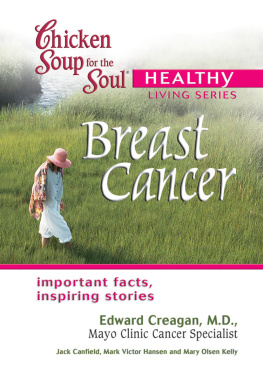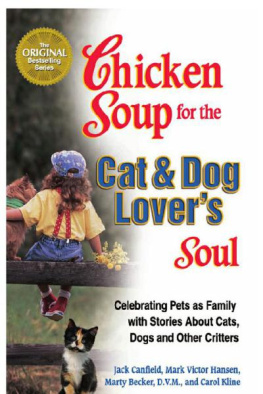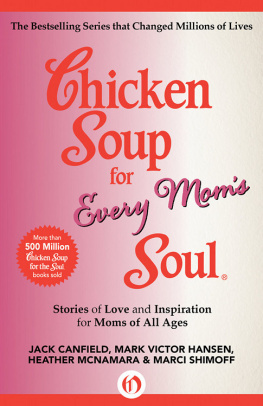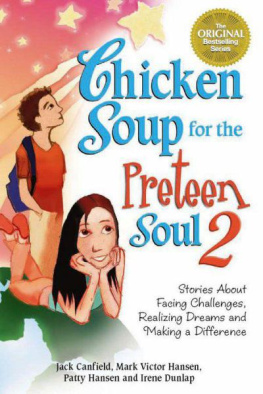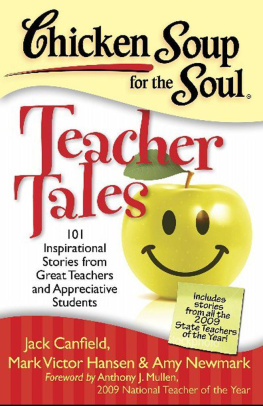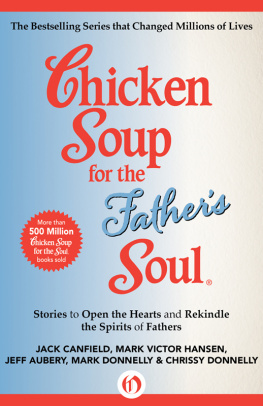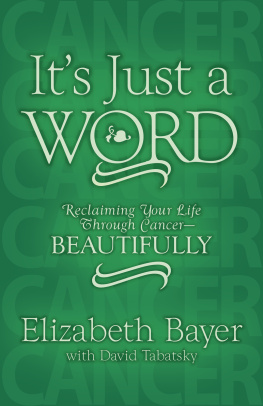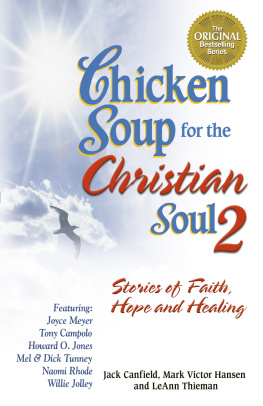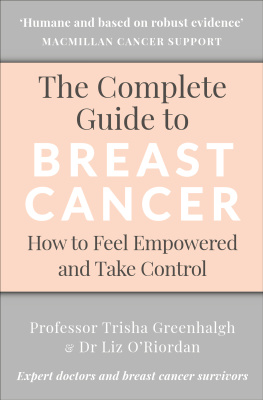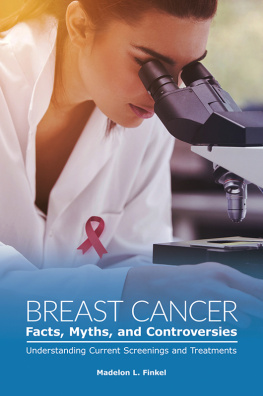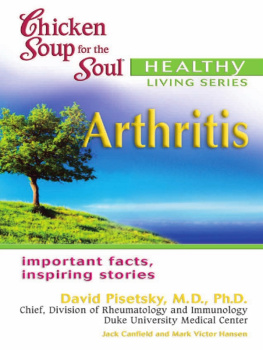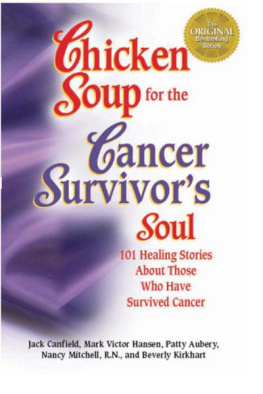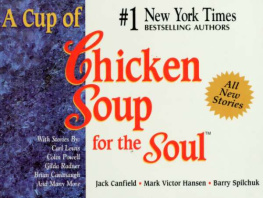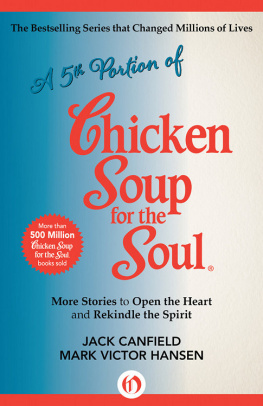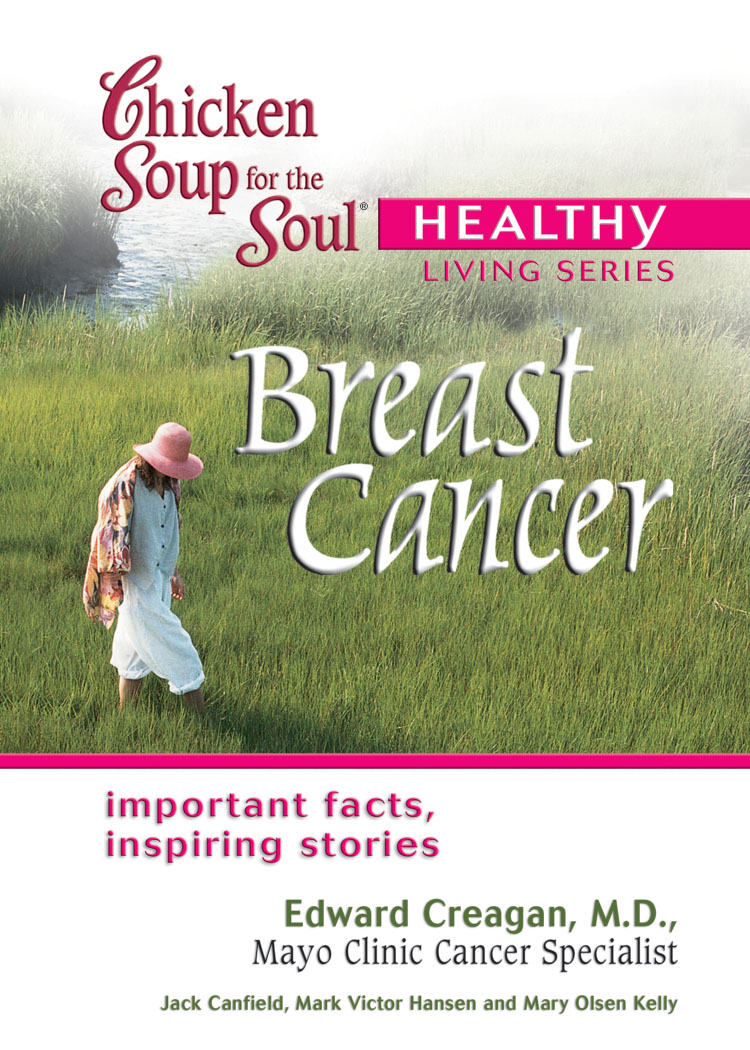Chicken Soup for the Soul Healthy Living Series:
Breast Cancer
Jack Canfield
Mark Victor Hansen
Mary Olsen Kelly
Edward Creagan, M.D.
CANCER SPECIALIST, MAYO CLINIC

Backlist, LLC, a unit of
Chicken Soup for the Soul Publishing, LLC
Cos Cob, CT
www.chickensoup.com
Fear less, hope more,
eat less, chew more,
whine less, breathe more,
talk less, say more,
love more,
and all good things
will be yours.
Swedish Proverb
Introduction:
Introduction: You Can Survive Any Diagnosis
M y world turned upside down at seven oclock on the morning of March 8 as I stood in the shower. A lump in the breast. A moment of panic. So begins a journey that every woman fears.
We all know the statistics; we all know the numbers. More women die of heart disease than breast cancer. But no disease strikes a dagger into the soul of a woman like breast cancer.
I finally mustered the courage to call my husband at work. He was stunned. Neither of us knew what to do. As the day wore on, I again felt my breast and realized my worst fears. Yes, the mass was still there. Like most of us, I rationalized, I bargained, I willed it to go away: This must be due to my period. It must be a cyst. It must be an injury while cleaning the house.
I called my doctor who agreed to see me several days down the road. Obviously, this was unacceptable. I told his office staff that I was on my way over, and I would sit in his office until he examined me and decided what to do. Thus began one of the most painful, challenging, and yet liberating, experiences of my life.
Liberating, you ask?
How can getting a life-threatening disease such as breast cancer be liberating?
I have seen this liberating power in my clinical practice. My breast cancer patients view life with new lenses. Time takes on new meaning. Whats important in life takes center stageeven if that means changing jobs, dumping a husband, marrying the long-time boyfriend, moving up a wedding date or launching children who have been hanging around the house too long.
Breast cancer brings insight into the real meaning and purpose of life. Breast cancer opens chapters for each of us as we take the journeyeach in our different ways. I learn from my patients about optimism, hope, dedication and love every day.
Patients ask me why. Why did I get breast cancer? Rather than waste precious moments wondering whether your illness was caused by something you did or didnt do, or worrying that your mother, sister or daughter will develop breast cancer if yours is a new case in the family, spend your time wisely looking forward and moving on. Only 5 to 10 percent of breast cancer has a genetic origin. For the rest, dont ask why, because there simply is no why.
The stories we have collected here will inspire you. Youll cry, youll laugh, but above all, you will feel empowered to make responsible and thoughtful decisions for the most important race of your life and the lives of women you love.
The race for health and wellness is winnable, and it is achievable, but none of us can do it alone. Without friends and family and companions and, above all, information, we are wandering in the medical and spiritual wilderness. In your treatment journey and to sustain you each wonderful day after diagnosis, you will want to use some of the tools we present, including social support, humor, chanting, visual imagery and even the magical healing power of your pet.
The bottom line is simple: health is our most precious gift. To preserve it, as patients, we need to be active, we need to be assertive, and we need to partner with our health care providers and our loved ones. The information in this book may well save your life, may indeed increase the quality of your life and is certainly the best investment you will ever make. I promise.
Edward T. Creagan, M.D.
American Cancer Society Professor of Clinical Oncology
John and Roma Rouse Professor of Humanism in Medicine
Professor, Mayo Clinic College of Medicine

The Best Thing That Ever Happened to Me
My cancer scare changed my life.
Im grateful for every new, healthy day I have.
It has helped me prioritize my life.
OLIVIA NEWTON-JOHN, SINGER
I t was late afternoon. I was catching up with my dictation after a busy day of operating, seeing my hospitalized postoperative patients, and evaluating the young and old in my clinic. I am a surgeon, and my mission, as taught in medical school and surgical residency, is to cure by cutting out disease.
Maxine, my office manager, poked her head in the door. Claire just got through seeing her oncologist and stopped in to say hi. Is this a good time? Claire and I have a deep connection. I have accompanied her on an arduous journey with painful twists and turns.
About two years earlier, Claire found out her husband was having an affair. She took herself to a nice resort to get away and gain some perspective. As she was soaking in the candlelit tub, she found a lump in her left breast. She said it was as if someone had directed her hand to that spot. She had an ominous feeling, so she cut her trip short.
The day I first met Claire, I examined her breasts. The surgery textbooks describe the feel of cancer: gritty and hard with an irregular, rough surface. Cancer is Latin for crab, and breast cancer sends out crablike tentacles. The books dont instruct you to listen to your intuition as you do the examination, so I learned to do that on my own. We physicians dont usually offer treatment based on hunches, so I put a needle in her breast and aspirated cells for the pathologists to look at under the microscope. As I had suspected, there were cancer cells.
How do you tell someone she has breast cancer? Theres no easy way, and each doctor finds one that seems best. When I performed Claires biopsy, I asked her whether she wanted to hear the results over the phone or in person. The next day I called and said, Claire, this is the phone call you dont want to get. Delivering bad news is the hardest part of being a surgeon. Its easier with a breast cancer patient like Claire because she often knows long before the biopsy results arrive.
Now, two years later and with a cancer-free bill of health from her oncologist, Claire started her victory dance in my office and sang, Yup. Im calling some girlfriends, and were going out on the town. After a moment of reflection, and with all sincerity, out came these words: Getting breast cancer is the best thing that ever happened to me.
I was not surprised to hear Claire say this. She is the eternal optimist, finding the silver lining with the determination and skill of Sherlock Holmes. Leave it to Claire to frame her story of personal betrayal, disfiguring operations, and chemotherapy and radiation as an opportunity for growth.
The moment I found my lump in the bathtub, I knew it was cancer. I thought breast cancer was a death sentence, she confided in me. I didnt know that most women who get breast cancer live a long life. But you know, the woman I was two years ago died. And then the real me was born.
Claire made big changes after her diagnosis. She divorced her husband and dyed her new post-chemotherapy hair blond. She understood both in her head and in her heart that the only moment she is promised is the one shes living. She was going to make each moment count.

